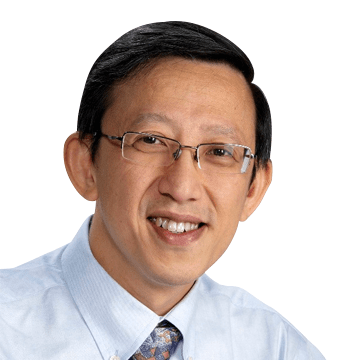In the first instalment of this series, we considered the impact of the Tariff War started by the American President Donald Trump on the public and patient in Singapore.
In this instalment, we will study the impact on the medical professionals in Singapore. Much of what is written came from my experience running medical practices as well as my consultancy work.
Professionals in Primary Care
The General Practitioners in the private sector would have to grapple with a patient load with less dispensable income. Private fee paying patients will be lesser. More Singaporeans will choose clinics which administer government schemes such as the Community Healthcare Assistance Scheme (CHAS), Merdeka Generation (MG), Pioneer Generation (PG) and Healthier SG (HSG) programs.
Some clinics which provide cover for insurance companies or package might also attract a larger patient base. In fact, these government or private schemes may prove to be the saviour of the private GPs.
Professionals in Hospitals
The specialist doctors in the private sector is expected to suffer the most. Medical tourism is almost dead in Singapore with most medical tourists seeking healthcare in neighbouring countries.
The insurance companies are also forming their own panels of specialists. Besides that, they are also giving preferential treatment to their clientele if they were to choose to seek healthcare services in the government public service.
All these will impact the bottom line of many private specialist clinics. If rental is not adjusted downwards, there is a high possibility that these clinics may close.
Professionals in Public Service
Our colleagues in the public system such as the tertiary hospitals and polyclinics will see a surge in the number of patients. They will be swarmed and overwhelmed by sheer numbers.
Their pay and renumeration package is likely to hold steady and not increase despite the increase load. They will have little choice but to soldier on. Moving into private sector is no more possible nor viable.
Medical business
In any medical business, the two main bulk of expenditure would be rental and manpower. Rental is not expected to drop overnight. Landlord is unlikely to voluntarily lower the rental. They also have mortgage to pay. The banks are not likely to help them either.
Manpower is also a non-negotiable item. Most clinics in the private sector are run on the leanest manpower. Staff who are well trained are hard to find. Certainly these staff would also not be cheap to hire. Hence, there is little room for the doctor owners for maneuver.
The cost of medicine and all supplies will increase as a result of the tariff war. Often price increase is not just the additional tariff. Prices also include the cost incurred from all aspect of delivering these supplies. Not uncommonly we see companies increasing their prices beyond the summation of all the additional fees and increases.
This would then push more Singaporeans to venture abroad for their healthcare needs. They will go to Johor Bahru to buy medicines, medical supplies, seek medical and dental treatment, run blood tests and other investigations. Many who prefer alternative or complimentary medicines would do likewise too.
Pharmaceutical companies
With a financial strapped society and market, pharmaceuticals will have to try a mass market approach. Generic medicines will most likely be more welcome compared to original medicine.
Original medicine makers may also have to lower their prices of their product in order to survive.
They are less likely to introduce new medicines or new method of treatment.
Medical Innovations, Technology and Research
With such gloomy outlook, it might seem logical that one would consider innovation and technology to lower the cost of delivering medical care.
However, research and development take time and money. Often investors would not have the fund and patience to see it through. They would hope and expect for a quick return of their investment. So the situation will likely spiral downwards leading to lower quality of care for the public.
Investors’ confidence will drop and many will seek an early exit to preserve their fund and resources.
Future generation
Every generation needs their own doctors and medical professionals. However, with a gloomy outlook, many parents will think twice before advising and encouraging their children to pursue a career in medicine.
We shall examine how the insurers and other healthcare related institutions will behave in our next installment.


